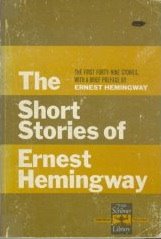 Early on in The Golden Compass, the first book in His Dark Materials trilogy by Philip Pullman, I became very afraid. It's not that the stories were scary, okay, they were a little, it's that I began to worry about getting obsessed with the ideas presented in the books. That it would consume me, that I would have to learn everything these books talked about, was not something I had time for.
Early on in The Golden Compass, the first book in His Dark Materials trilogy by Philip Pullman, I became very afraid. It's not that the stories were scary, okay, they were a little, it's that I began to worry about getting obsessed with the ideas presented in the books. That it would consume me, that I would have to learn everything these books talked about, was not something I had time for.I didn't become obsessed, but I did become a little bit of a geek for a split second. One split second.
His Dark Materials is a fantasy trilogy filled with magic and wonder and suspence that succeeds because the ideas the books are based on are actual physical phenomena. But that's about the only reason they do succeed. I have to say I was fairly disappointed with the writing, the plot twists, and the storytelling in general. That said, there's a lot going in this trilogy that makes it worthwhile. Specifically, I like the way the stories deal with religion, and how Pullman turns a young adult trilogy of novels (although he refuses to market them as young adult books) into, at times, a philosophical inquiry into the nature of religion, morality, and how the two mesh.
Also interesting were the use of modern day physics to account for religious occurences. Pullman wondrously equates quantum physics with the presence of angels and souls as if they were one. The ideas are solid, it's only too bad the execution isn't as strong.
His Dark Materials is a healthy alternative to fantasy fans looking for something to bide their time before the next Harry Potter book hits the shelves this summer. It's not as magical as Harry Potter, it's not as intoxicating nor is it even as close to good, but it gets the job done. It's definitely worth the time if you're into science and religion and fantasy. If not, don't bother. You'll be wishing some other dark materials on the books.


No comments:
Post a Comment